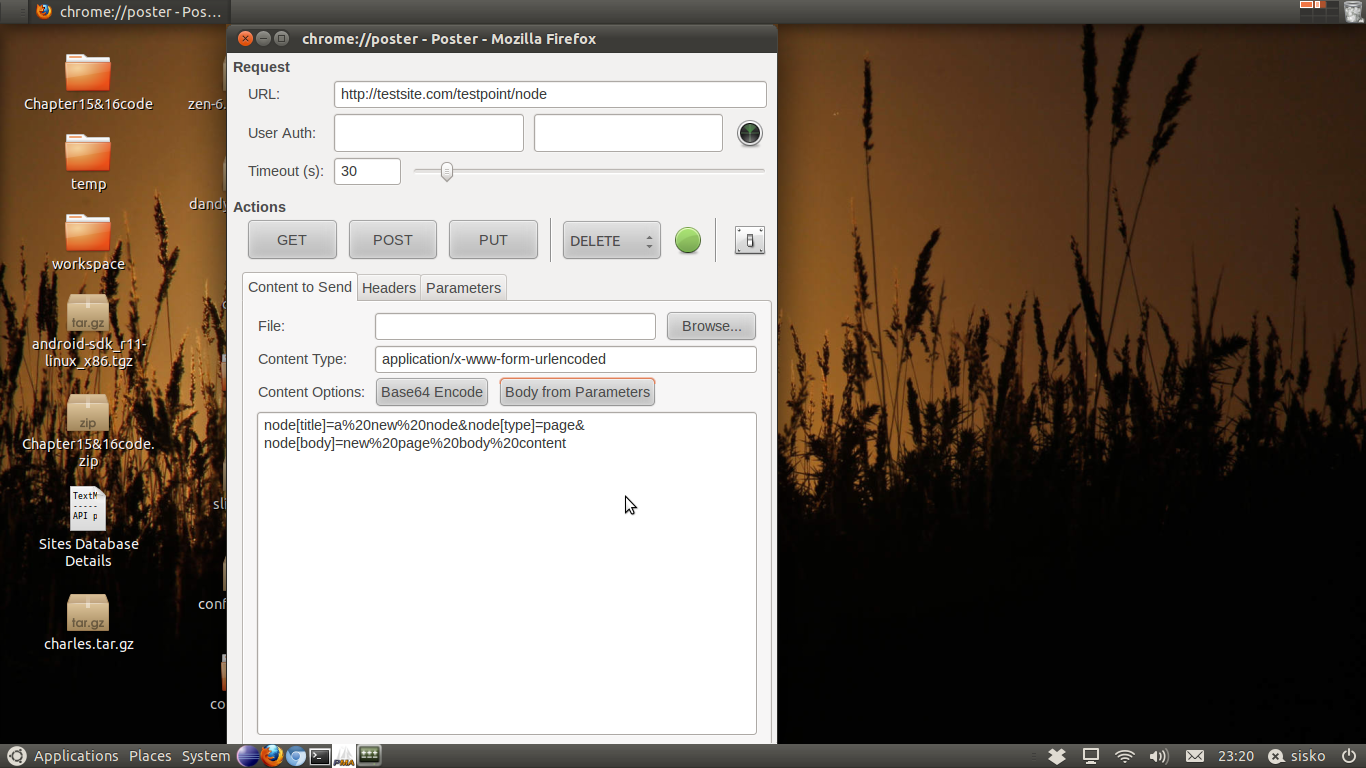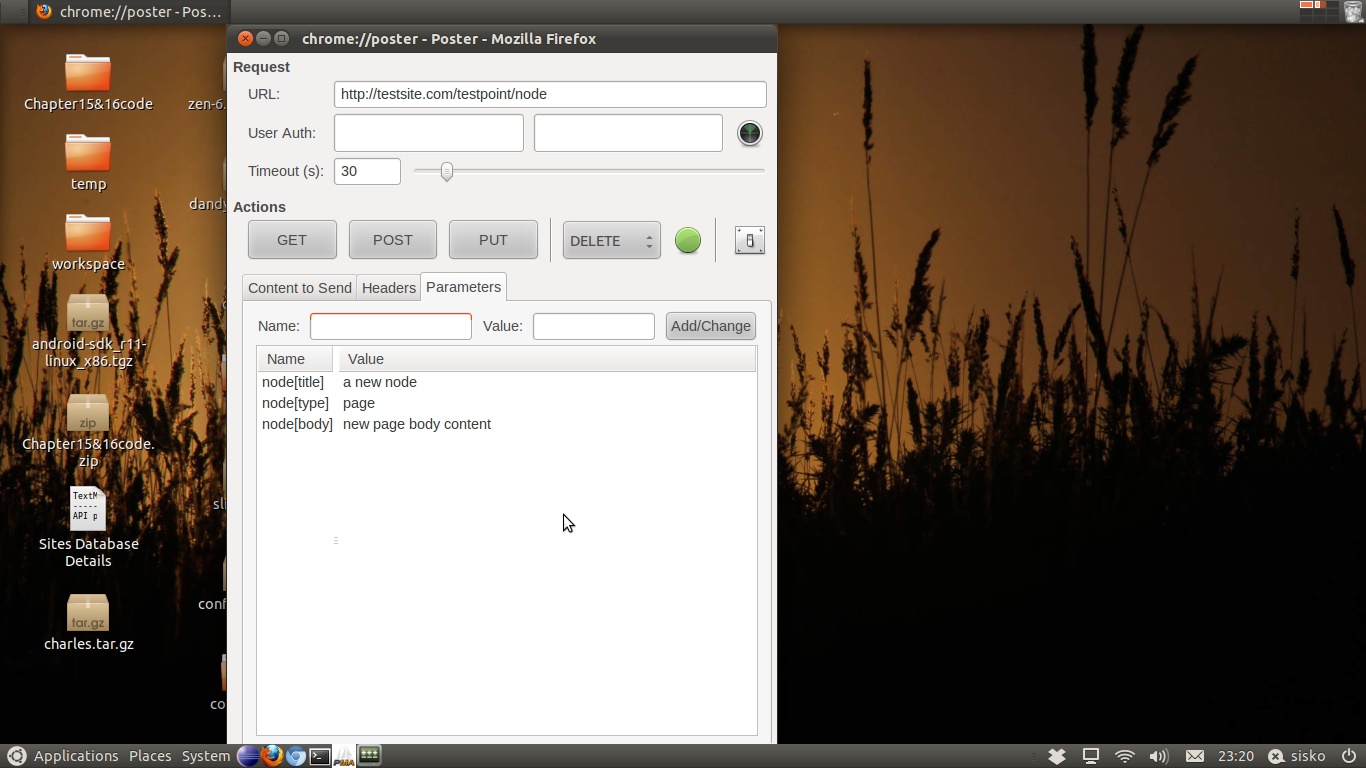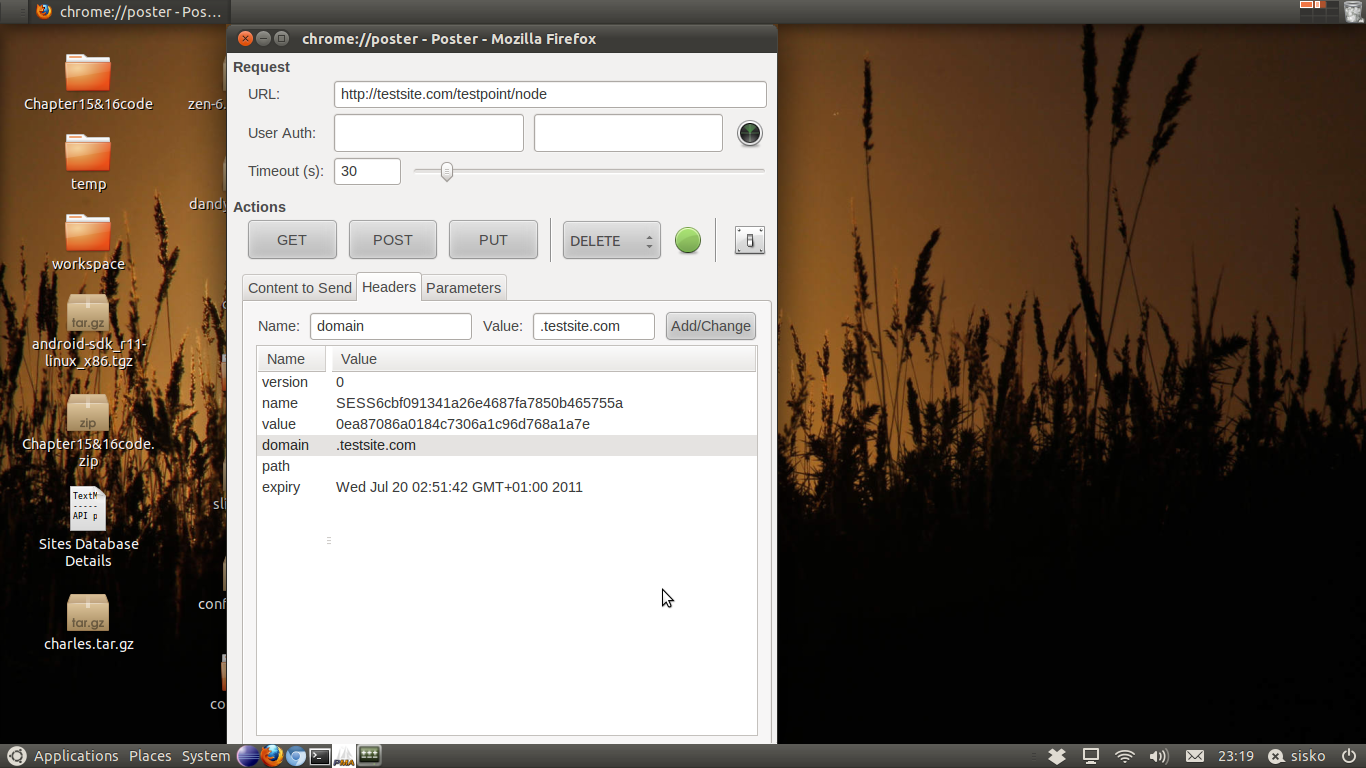I am looking for a way to use an authenticated user session to remotely create content on my Drupal site.
My challenge is a somewhat complex one so please bear with me.
Using the Poster Firefox addon I am able to simulate creating and logging a user onto a Drupal website. The issue now is how to enable a persistent connection. So, using Chrome I login and I detect the session cookie details. I then try to use those cookie details in the Firefox Poster addon interface to remotely create a new node(page) on my drupal site. The objective is for Drupal to report the new remotely created node(page) as authored by my logged-in user on the Chrome browser.
Ultimately, I am trying to figure out the recipe to translate to a program that will serve as the remote client while Drupal is used as a server.
I hope someone can shed some light on this issue for me. Thanks for your time.
PS: The following images show how I am setting the http post header containing the cookie information and the variables Drupal uses to create my remotely created node.



